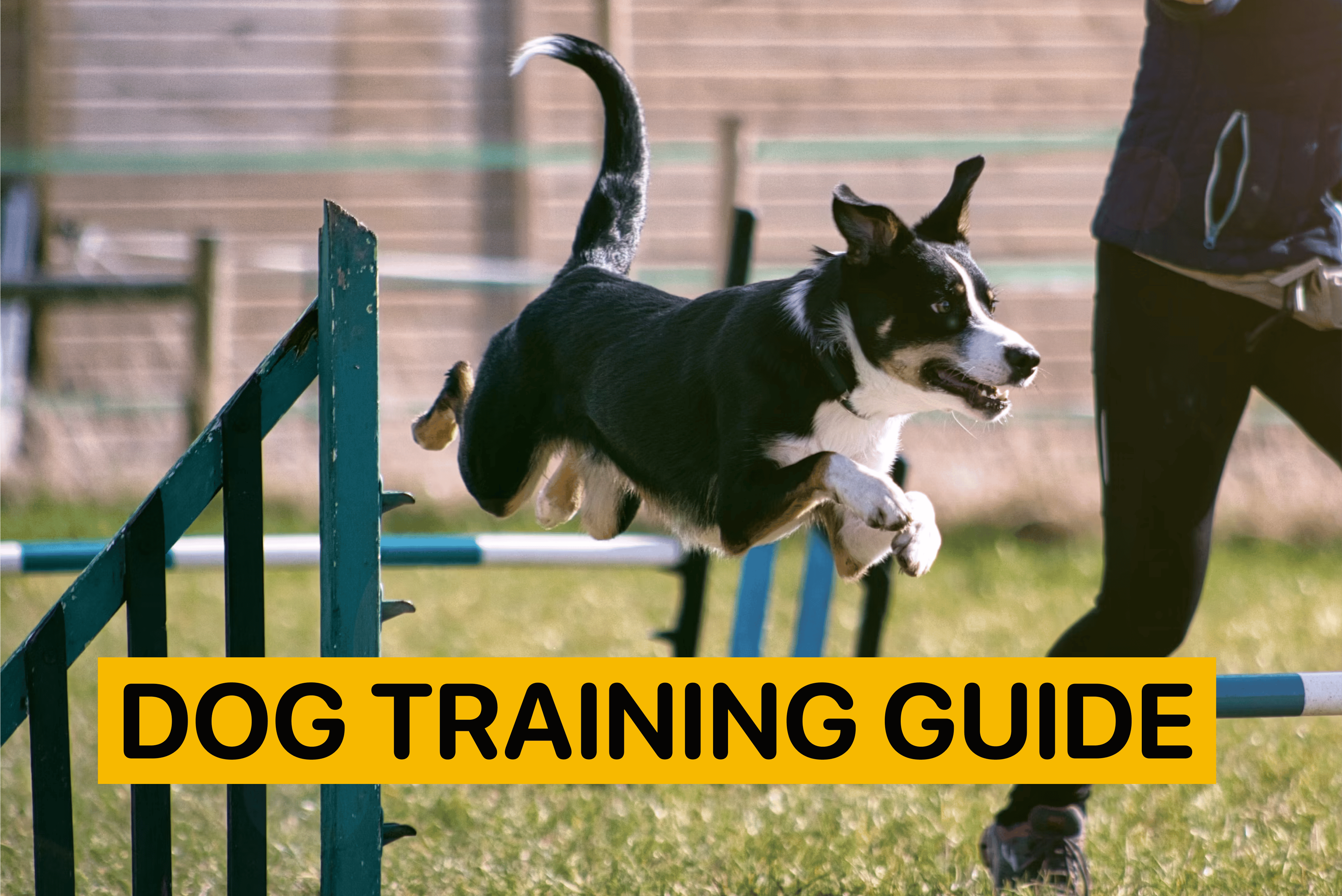How to Train a Goldendoodle: Breed Characteristics, Training Tips, and More

By
Woofz Team Updated on |Reviewed by Shannon Kenny
Key Takeaways
-
Goldendoodles need sufficient mental and physical stimulation daily
-
High intelligence makes them responsive to positive reinforcement methods, such as rewarding good behavior
-
Concentrate on behaviors like jumping, nipping, and other destructive behaviors.
-
Prone to separation anxiety when their owners are away.
-
Consider breed-specific aspects of caring for a goldendoodle to ensure they have the best quality of life.
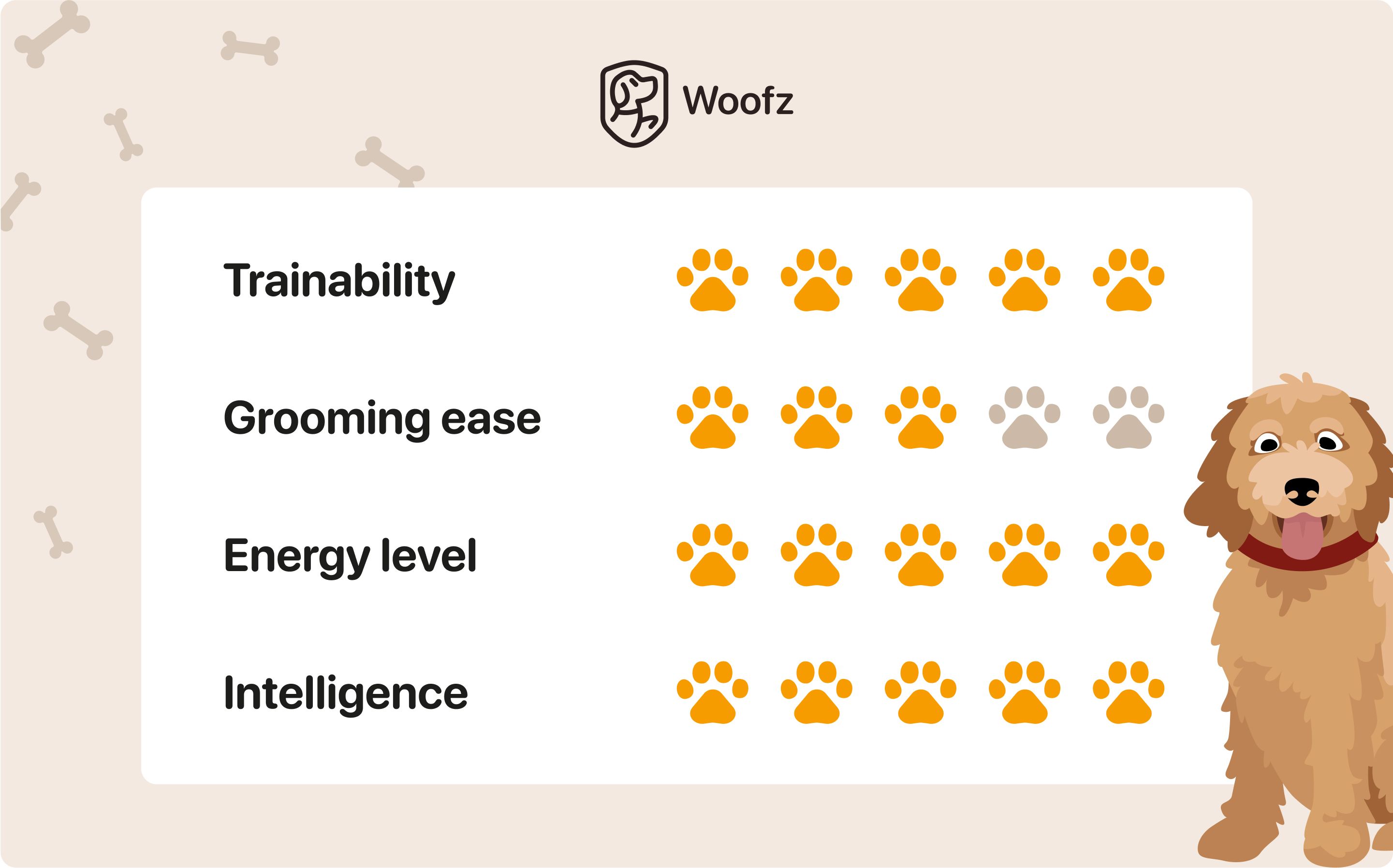
Training a Goldendoodle: Characteristics and Temperament
Goldendoodles inherited the characteristics of their parents, the golden retriever and the poodle. They’re fun-loving, friendly, and social, which makes them the perfect companion pets. Their love of social interactions makes them an ideal choice for families with young kids and other pets, as long as they’re properly socialized.
Height
The goldendoodle’s height can vary depending on their genetic makeup. Height is primarily determined by their poodle parent, as they come from a standard, miniature, or toy poodle breed.
| Goldendoodle Size | Height |
|---|---|
| Standard | 21–24 in (53–61 cm) |
| Medium | 17–20 in (43–51 cm) |
| Miniature | 14–16 in (36–41 cm) |

Weight
Depending on their height, the breed’s weight can also vary significantly.
| Goldendoodle Size | Weight |
|---|---|
| Standard | Over 51 lbs (23 kg) |
| Medium | 36-50 lbs (16-22 kg) |
| Miniature | 26-35 lbs (12-16 kg) |
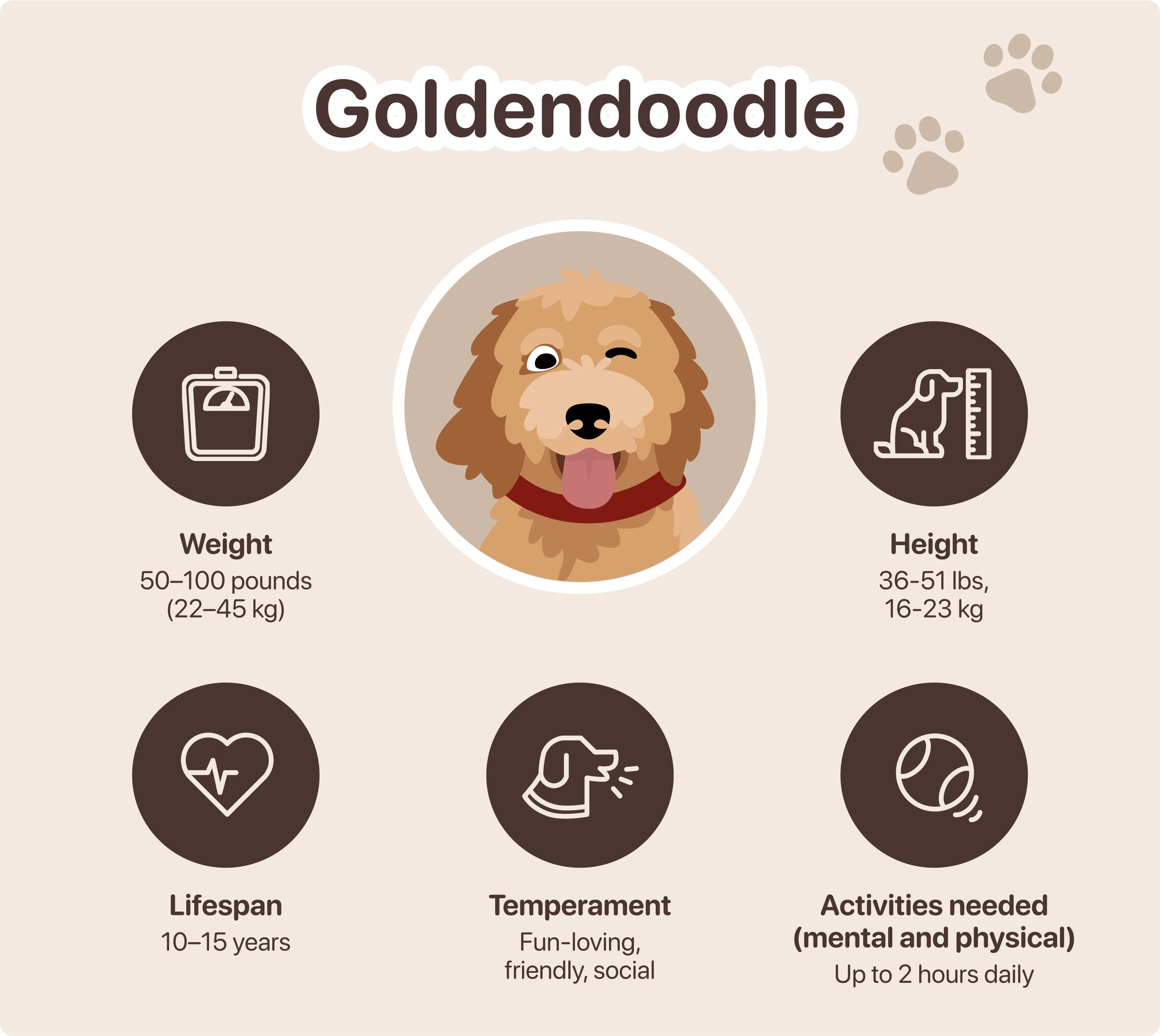
Lifespan
The average lifespan of a goldendoodle is 10–15 years. Smaller individuals tend to live longer than larger ones. However, factors such as genetics, proper nutrition, and adequate veterinary care play a significant role in determining the lifespan of your pet.
Energy level
This breed is characterized by moderate to high energy levels.

Typically, 30–60 minutes of intensive exercise and mental stimulation is sufficient to provide these dogs with a chance to channel their energy into a productive source. Otherwise, they may display destructive tendencies or other unwanted behaviors.
Temperament
These dogs are highly human-oriented and enjoy spending time with people and other pets. They’re gentle with children, affectionate, and enjoy fun activities. However, because of their dependence on their owners, this breed is more prone to separation anxiety.

They also require regular baths using breed-specific products and grooming, such as clipping. Regular visits to a groomer for professional haircuts and trims are a must.
Are Goldendoodles Easy to Train?
The breed is famous for its trainability, all due to the high intelligence level the puppy inherits from their parents. That’s why they require daily mental stimulation in the form of play (such as puzzles or different opportunities to use their sense of smell), human-canine interaction, and obedience training sessions. These dogs thrive on positive reinforcement. As a result, consistent training that begins at an early age can provide excellent results.
6 Tips on How to Train a Goldendoodle Puppy
Training a goldendoodle puppy is not entirely different from teaching any other dog breed. However, it’s worth keeping in mind that their easy and adaptable personality is not a guarantee your new puppy will grow up to become a well-behaved dog. Teaching your pooch skills and basic commands can be easier than with other breeds, but a structured and systematic approach is still required.
1. Reward-based training techniques
Stick to positive reinforcement training and provide consistent treats and rewards for desired behavior. Choose high-value treats to motivate your furry friend to perform the desired actions.
2. Socialization
Begin your training in soclializing the dog as soon as a new puppy arrives home.
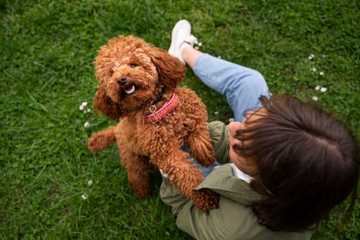
Although this breed is friendly and affectionate, early exposure to other people, family members, and animals can help reduce the risk of unwanted behaviors.
3. Crate training
Crate training brings numerous benefits not only for a pet but for their owners, too. It can teach your dog that they have a safe space to wait for you and help reduce separation anxiety that this breed is prone to. It can also aid in the potty training process.
4. Clicker training
You can also introduce your Goldendoodle to clicker training to mark the habits you want to encourage.
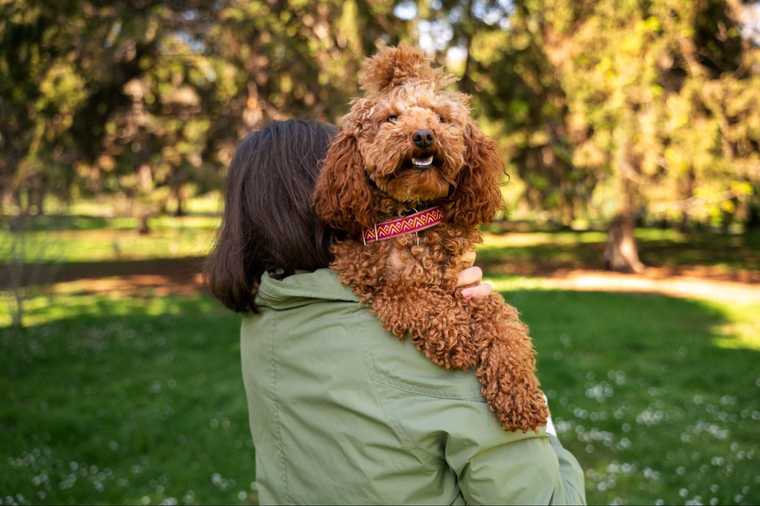
5. Potty training
Stick to the potty-break routine and use special marker words, such as “Go potty!” to encourage your puppy to use the outdoors. Goldendoodles can easily develop consistent habits, and, when paired with a food reward for going potty outside, this approach is guaranteed to yield positive outcomes.
6. Mental and physical stimulation
Goldendoodles benefit greatly from regular physical and mental stimulation, given their high intelligence and high energy levels. An adult dog of this breed requires at least 1 to 2 hours of combined physical activity and intellectually challenging tasks per day.
Goldendoodle Training and Behavioral Problems
Like many other breeds, goldendoodles are prone to certain breed-specific behavioral tendencies that dog owners should be aware of.
-
Mouthing and nipping: These behaviors are typically exhibited by young puppies, but adult goldendoodles can also display them when overstimulated or as part of attention-seeking behavior. Providing them with safe chewing alternatives and redirecting unwanted behavior helps reduce these tendencies.
-
Jumping: Due to their high energy levels, these dogs can develop the habit of jumping on people when they’re excited or aren’t doing enough physical exercise. Provide other alternatives to channel their energy and practice impulse control.
-
Leash pulling: Excess energy can also cause leash pulling. Use a no-pull harness and positive reinforcement to discourage the habit and teach your dog the correct behavior instead.
-
Barking: Goldendoodles are generally not prone to excessive alert barking, but they may vocalize excessively due to boredom.
-
Separation anxiety: This breed tends to display separation anxiety in the absence of their owners. Gradually introduce them to alone time to increase their tolerance to being left alone.
-
Aggression: Goldendoodles can also be prone to aggressive behavior. These tendencies stem from their neurochemistry, genetics, or a lack of early socialization. Sometimes, it’s a mix of all three factors.

Things to Know About Goldendoodles
Now, let's focus on some breed-specific aspects of caring for a goldendoodle.
Health
To ensure a dog has a long and healthy life, responsible pet owners must be aware of some health conditions the breed is susceptible to.
Goldendoodles are more likely to develop:
- Joint issues
- Eye problems
- Ear infections
- Digestive issues
- Excessive weight
- Bleeding disorders
- Neurological issues
Feeding
The breed requires a high-quality and balanced diet.

Adult dogs can be served food twice a day at regular intervals. Consider your dog’s individual characteristics, such as height, energy level, and age, to customize their diet plan.
Grooming
It’s essential to keep a goldendoodle’s coat in optimal condition. Brush their fur daily for 5–10 minutes. Use a special slicker brush to prevent tangles. You can also use a special dry shampoo to freshen up their coat when you can’t bathe them.
You must also make a point of sticking to a dental care routine. Check and clean their ears daily and clip their nails every 4 weeks. Additionally, schedule regular appointments with a professional groomer to maintain your pet's haircut.
Wrap Up
Goldendoodles are an intelligent, friendly, and affectionate breed. Due to their high level of intelligence, they consistently demonstrate outstanding results in dog training, and you can expect them to master more advanced training with greater ease. Training this breed is not only about teaching them the needed skills, but also a way to meet their demands for intense mental stimulation.


